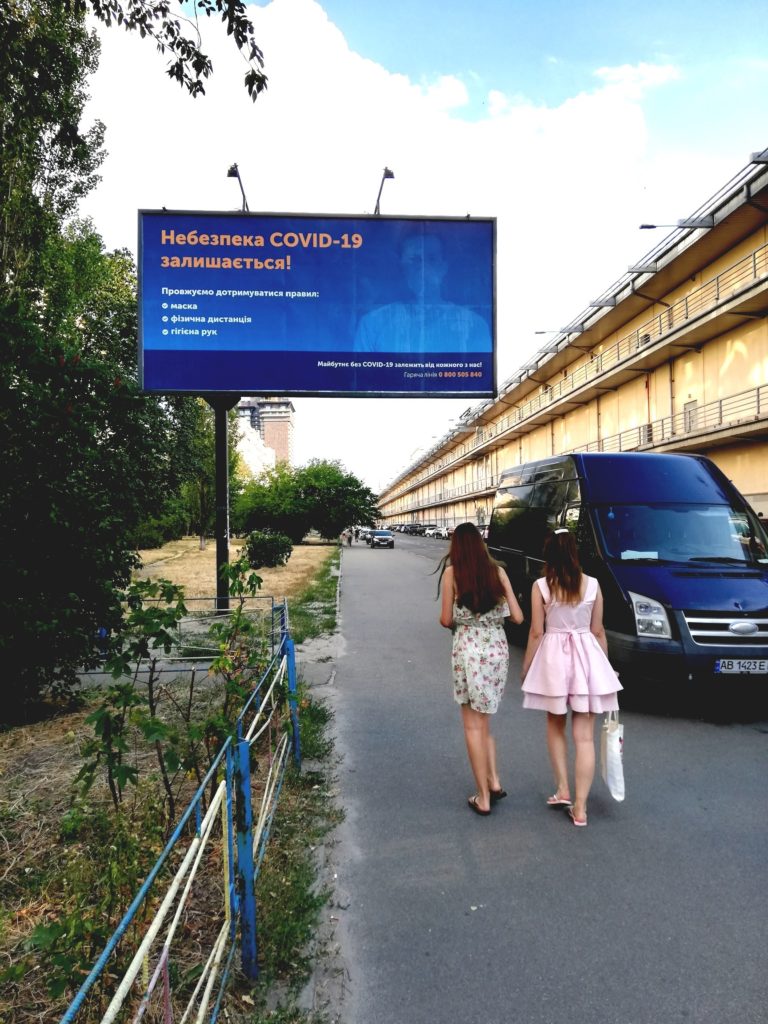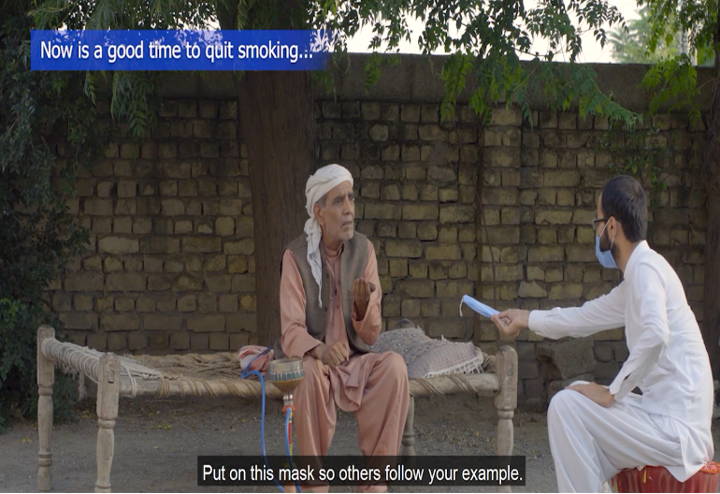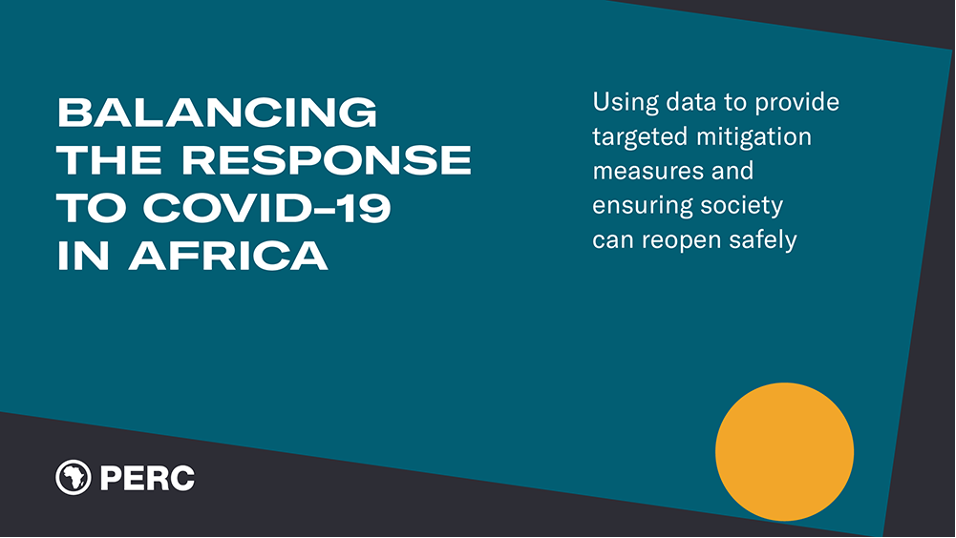2020 has been a year for the history books. The COVID-19 pandemic has presented the largest public health challenge we have faced in over a century. Since early 2020, the virus has spread around the globe, leaving very few places and people untouched. It has killed nearly 1.7 million people and sickened more than 77 million. Entire societies and economies have come to a standstill, streets have emptied, and commonplace activities, such as shaking hands and visiting friends, have become taboo.
As we approach the new year, many places around the world are in the midst of second or third waves of the virus. Death tolls continue to rise, and social and economic upheaval remain. Millions face job loss, food insecurity and barriers to accessing health care. Decades of work to make the world a healthier, safer and more equitable place are at risk of being undone.
New vaccines are cause for hope, but they are no panacea. COVID-19 has revealed deep cracks in our health, social and economic systems, that were fracturing long before. We need to take the time to reflect on what we’ve learned this year and how we can use it to reimagine public health to build back stronger and healthier.
Invest in Prevention to Save Lives and Cut Costs
COVID-19 has taken nearly 1.6 million lives so far, and is estimated to have shrunk the global GDP by 1% in 2020. Once again, we were forced to react to a health emergency that could have been prevented, or at least mitigated.
When Prevent Epidemics team at Resolve to Save Lives, an initiative of Vital Strategies, started its work in 2017, it found that many countries had large gaps in epidemic preparedness. With increased air travel, urbanization and repercussions from climate change, infectious diseases present a growing threat. Making the world safer from future epidemics and preventing an enormous loss of life would require a global contribution of $4.5 billion a year—or roughly 65 cents per person. This is far less than the trillions of dollars that the COVID-19 pandemic alone has been estimated to have cost us.
Every year we lose 41 million people to noncommunicable diseases (NCDs) that are largely preventable, and are increasingly burdening lower- and middle-income countries. Battling NCDs is expected to cost the world US$47 trillion by 2030. Cost-effective policies and interventions to help prevent and reduce NCDs—such as making public spaces smoke-free and scaling up strategies to reduce sodium consumption, among others—would cost US $11.2 billion per year and prevent $7 trillion in lost productivity in low- and -middle income countries. Public health needs to push harder for action on what we already know: prevention is both the ethical and economically smart choice.
Stop “Infodemics” Before They Start
We have seen misinformation spread rapidly in 2020, contributing to unsupported claims on masks, physical distancing, vaccines and more. This “infodemic” has undermined public health measures and caused fragmented responses on the local and national level. Misleading information can be extremely harmful, and lead to stigmatization and poor adherence to lifesaving rules and regulations. Governments and leaders have a key role to play in sharing accurate and informed messaging.
To help governments and other organizations respond to the “infodemic,” Vital Strategies launched the COVID-19 Risk Communication Hub, which houses free-to-use, evidence-based materials produced by our team, the World Health Organization and other reputable sources. We also created campaigns to reach millions of people in Ukraine and Pakistan, where misinformation and pandemic weariness were affecting adherence to protective public health measures. Disseminating clear, evidenced-based and transparent information on credible platforms is critical to informing people and gaining public trust.

Billboard from the “COVID-Free Tomorrow” campaign in Ukraine.
Seize the Moment to Encourage Healthy Policy and Behaviors
Public health is in the spotlight in 2020: People around the world are using terminology like “flatten the curve” and “underlying conditions,” and many are more focused on their health than ever before. We should seize the moment to draw attention to policies and behaviors that could reduce risk from noncommunicable diseases, like cancer, diabetes and heart disease, which account for 80% of the world’s premature deaths.
Now is a good time to build public support for proven policies that make healthier choices easier, such as increasing taxes on tobacco or adding warning labels to unhealthy, processed foods. Vital Strategies’ Food Policy team released a guide this year to assist countries in taking up front-of-package warning labels; a cost-effective, high-impact strategy to combat obesity. The guide highlights campaigns to build support for the policy in Mexico, where best-practice black octagonal warning labels were adopted earlier this year, and in Brazil, which moved closer to adopting warning labels.
While preventive health behaviors are on people’s minds, we should reinforce messages about reducing alcohol use, eating healthy diets, engaging in physical activity and quitting tobacco. According to the World Health Organization, the pandemic has led millions of tobacco users to say they want to quit. Vital Strategies’ Tobacco Control team has worked with governments and civil society to conduct communication campaigns in India, Pakistan, the Philippines and other countries, on the harms of tobacco and COVID-19, to motivate people to quit and to provide quitlines and other tools to do so.

A public service announcement from the FACT campaign in Pakistan features a man informing his friend that tobacco users are at higher risk for severe cases of COVID-19, while a text overlay encourages viewers to quit.
Center Equity in Everything We Do
We have long been aware that disparate health outcomes are driven by unequal social conditions. But COVID-19 has further unmasked these deeply rooted inequalities, and showed that we must address the systemic racism, colonialism and sexism that are at the core of health inequities. In many countries, we are seeing that racial and ethnic groups that experienced pre-pandemic health and economic disparities from long legacies of racism, are bearing the brunt of the virus and economic fallout. Women worldwide are facing heightened levels of violence and losing progress in education and work. Strengthening public health systems must include making them more just.
As an organization, we have looked inward and outward to center equity across everything we do. Vital Strategies’ Civil Registration and Vital Statistics Program recently launched a project in Peru that aims to ensure that the country’s LGBTI community has universal and straightforward access to civil registration and identity documents, which serve as a gateway for exercising individual rights and protections. During the pandemic, Vital developed a contact tracing campaign with and for hard-hit Black and Latinx people in the U.S., many of whom hold an earned distrust of medical institutions because of long histories of medical racism. While we cannot rewrite history, we can take action now to pave a future where everyone, everywhere has equal opportunity to live a healthy life.


Extend Global Cooperation and Solidarity Beyond the Pandemic
The pandemic has affected every single country and community. We’re a global society and our safety is interlinked. Governments and international donors must invest in public health—in the countries they lead and around the world—to strengthen preparedness, research, and capacities in surveillance and data.
The future of public health requires working together. A recent example is the Partnership for Evidence-Based Response to COVID-19, which was established during the pandemic to monitor the impact of COVID-19 on African Union Member States through data collection and analysis. At the same time, international solidarity must extend beyond COVID-19 and into other public health areas including tobacco control, air pollution and cardiovascular health. Global commitment and cooperation is essential to address many of the epidemics that kill millions of people worldwide.

Collect Quality and Equitable Data
The importance of timely, accurate, transparent and disaggregated data has never been more apparent. Data on COVID-19 mortality and disease spread has helped us determine where to focus resources and how to coordinate lifesaving public health and social measures. Collecting data disaggregated by race and ethnicity has helped to identify COVID-19’s unequal impact. Too often, race and ethnicity data is not uniformly collected or slow to be made public. Data on gender is more routinely collected, but systematic exclusion of women from civil registration and vital statistics systems (CRVS) that register deaths in many countries, is likely affecting how completely women are being counted during the pandemic.
Strengthening CRVS systems through a gendered lens would not only help to better understand COVID-19, but would help to close gender gaps. Many of the barriers that women face to registration and obtaining legal documentation are related to cost and distance. To effectively address these barriers, Vital Strategies’ Colombia Rural Vital program, has enlisted frontline health workers, trained community leaders, and enabled people to use text messages to report vital events to registration authorities. Programs like this are an example of how we can address biases and gaps in vital event registration and in other data collection during and beyond the pandemic.
Look to Urbanization as a Determinant of Health
Cities are now home to over 50% of the world’s population, which makes them uniquely positioned to lead in the fight against disease and injuries. As many cities found themselves at the epicenter of the COVID-19 outbreak, urban leaders have played a transformative role. Through the Partnership for Healthy Cities, a collaboration between Bloomberg Philanthropies, the World Health Organization and Vital Strategies to prevent noncommunicable diseases and injuries in its global network of 70 cities, mayors have quickly mobilized to respond to COVID-19. Athens rolled out a program to provide temporary housing for people affected by homelessness and a specialized support center for people who inject drugs. In response to rising poverty levels that accompanied lockdowns, Bogotá provided cash assistance to its residents while increasing health care capacity and access.
Many cities mounted a remarkable pandemic response, supporting hard-to-reach populations and protecting lives and livelihoods. They have shown that is possible to quickly build and scale up programs to keep citizens safe and healthy. These leaders and their response can serve as models for governments and regions worldwide and can influence national and global policies. We should make sure to put urban leaders at the center of guiding future responses to public health challenges beyond COVID-19.

Follow us on Twitter: @VitalStrat
About Vital Strategies
Vital Strategies is a global health organization that believes every person should be protected by a strong public health system. We work with governments and civil society in 73 countries to design and implement evidence-based strategies that tackle their most pressing public health problems. Our goal is to see governments adopt promising interventions at scale as rapidly as possible.
